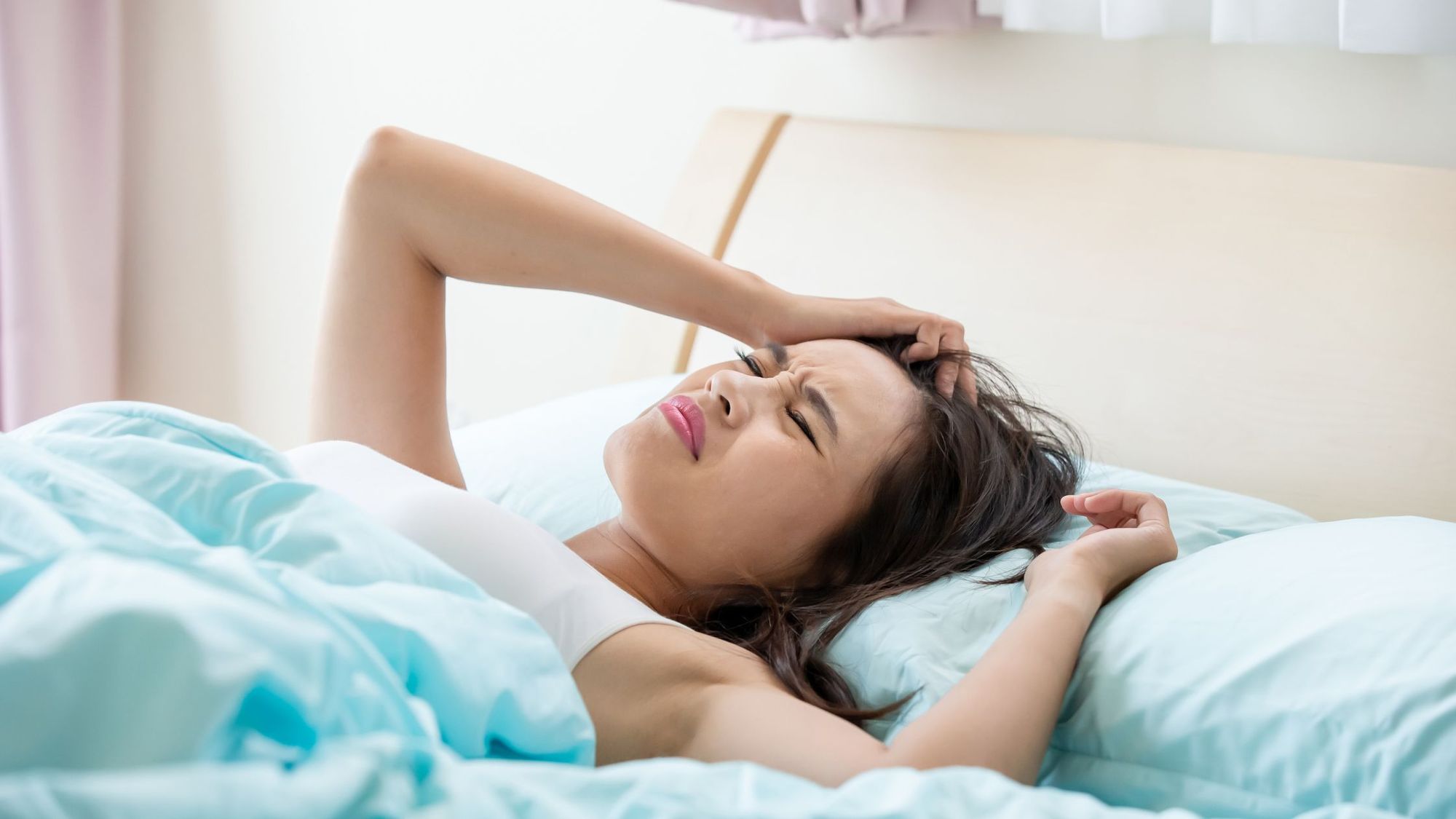
Estrogen is one of the primary hormones and one of the most important hormones for women to have healthy levels of. The signs of low estrogen or any sort of hormonal imbalance is important to keep an eye out for. Hormonal imbalances can impact your health in a surprising number of ways.
Estrogen is considered to be a predominantly female hormone, while testosterone is said to be the main hormone for males. However, the two hormones are found in both sexes, and are seen as critical enzymes for survival and health in both genders. Women just naturally supposed to have far higher estrogen levels and lower levels of testosterone (and vice versa for men).
Moreover, estrogen level affects higher cognitive functions and synaptic health. That’s why an imbalance in this hormone and low levels of estrogen could adversely impact mood and result in sadness, loneliness, or anxiety. Since poor estrogen levels results in a lot of physical and mental changes, it could also lead to a lack of self-confidence, loss of interest in sex or intimacy, and irritability, which consequently impacts relationships.
If you’re consistently experiencing low levels of estrogen, you may notice a host of irritating symptoms or even some changes in your personality.
Symptoms and signs of low estrogen usually vary from mild to severe, depending on the cause of low estrogen. Some of the signs of low estrogen (like loss of interest in intimacy with your partner) are the types of subtle signs people don’t think could be caused by a hormonal imbalance in their body.
Check out the possible signs of low estrogen levels below:

Mood Swings: An Unexpected Sign of Low Estrogen Levels
As mentioned earlier, many of the signs of low estrogen have to do with a change in your mood. Harvard Health points out that lower levels of estrogen could lead to more mood disorders. As noted above, estrogen is an enzyme that affects neural pathways. It helps trigger the production of serotonin, which is the feel-good chemical that regulates mood. Those with poor estrogen levels have a decrease in serotonin production. This could lead to the following:
- Mood swings
- Irritability
- Anxiety
- Depression
Tenderness of Breasts
Do you feel breast soreness consistently? It is normal for girls to feel tenderness in their breasts before they get their period. That’s because estrogen naturally decreases during this part of the menstrual cycle. However, you shouldn’t be feeling tenderness continually. Persistent sore and sensitive breasts are an indicator of low estrogen levels.
Vaginal Dryness or Atrophy
Unfortunately, low estrogen could lead to the slow deterioration of the vagina. This usually comes with aging, but it could crop up prematurely if you have low estrogen. Atrophic vaginitis or vagina atrophy is a more severe symptom, but this malady is fairly common in women with hormonal imbalance. It may exhibit itself in terms of a dryer, thinner, and shrunken vagina. The consequence of these are:
- Vagina feels itchy due to increased dryness
- Burning sensation when peeing
- Lack of moisture makes sex painful
- Bleeding after sex
- Presence of inflammation which makes the vaginal canal feel swollen or tighter
- Decreased sex drive
Irregular or Disappearing Menses
Women who have low estrogen, have disrupted menstrual cycles. After all, estrogen is made in the ovaries and drives your periods. When there’s insufficient estrogen, it could lead to irregular cycles. In the worst cases, your menses could stop completely (amenorrhea). This may make it harder for a woman in her reproductive years to track fertile days and become pregnant.

Trouble Sleeping
Women with low estrogen levels could experience poor sleep and chronic fatigue. As previously mentioned, estrogen impacts serotonin production. In turn, the presence of serotonin stimulates the release of melatonin, the primary sleep hormone. Women with low levels of estrogen could have disrupted sleep with symptoms of insomnia because they don’t have enough serotonin and melatonin. They could also feel more tired than usual, leading to poor focus and concentration.
Migraines
Bad headaches, especially migraines, occurring before and during periods is one of the signs of low estrogen. This hormone is partly responsible for controlling brain chemicals that impact the sensation of pain. Hence, a drop in estrogen could trigger a killer headache. To make things worse, higher cortisol or stress hormones kick in during this time, compounding the problem.
Hot Flashes
Those who are suffering from low estrogen could feel the number one complaint of menopausal women which is hot flashes. They feel extremely hot even when it’s pleasantly cool. At the same time, they could also experience night sweats or wake up in the middle of the night with sleepwear and hair drenched in sweat even with climate control. The reason for this is estrogen is said to impact the hypothalamus. This is the area of the brain that controls heart rate and body temperature.
Weight Gain in Tummy Area
Dr. Jennifer Wilder explains, “A decrease in estrogen levels is associated with loss of subcutaneous fat or fat stored under the skin, but an increase in abdominal fat.” Thus, women who follow the same diet and eating plan but notice a sudden expansion of belly flab or accumulation of fats in the tummy area may realize this is a sign of low estrogen levels in their body.
Frequent UTIs
The urethra, where urine comes from, retains optimal functionality with the help of estrogen. The hormone assists in maintaining the urethra’s linings by keeping unhealthy microorganisms out. However, low estrogen causes the thinning of this lining. As a result, it becomes easier for bacteria to enter the ureter, leading to frequent UTIs or urinary tract infections.
Brittle or Weak Bones
Bone loss or bone deterioration is a common side effect when estrogen becomes too low. Estrogen is necessary to keep bone density and strength since this hormone works with calcium and vitamin D to keep your bones strong. If you suffer from poor estrogen levels, this could make your bones more brittle. This means you have a higher risk of getting a fracture from a simple fall.
Dry Skin
One of the things you may suffer from with low estrogen is excessively dry skin that looks red and feels itchy. That’s because estrogen is responsible for stimulating the body into producing sebum or oil and collagen, which keep the skin supple. It also ensures the skin barrier is healthy by keeping it moist. When your estrogen levels decline, your body produces less oil and collagen. This leads to dehydration manifesting as dry, itchy skin.
So, if you didn’t know that dry skin was one of the signs of low estrogen, now you know. If multiple signs of low estrogen in this list apply to you, it really couldn’t hurt to talk to your doctor about getting a hormone test.
Are You Concerned About Estrogen Loss?
It is normal for individuals to have varying levels of estrogen. The changing highs or lows associated with estrogen could be a normal part of your development as this stays in sync with other hormones and bodily processes depending on the season of your life. Estrogen levels naturally fluctuate during a woman’s menstrual cycle and lifetime due to factors like puberty, pregnancy, menopause, or even stressful situations.
However, having consistently low estrogen is different. Other factors could be the underlying source of poor estrogen production. Check out the following health conditions that affect estrogen levels:
- Ovarian failure and other issues with the ovaries like PCOS
- Congenital issues like Turner syndrome
- Problems with the pituitary gland
- Obesity
- Excessive exercise
- Extreme dieting like anorexia
- Tumors in adrenal glands
- Diabetes
- High blood pressure
- Use of certain medications
If you feel any of these symptoms, you have every right to feel concerned because estrogen is a crucial hormone for your sexual development and reproduction. It also plays a critical role in other body systems. Should you feel any of these symptoms, your healthcare provider could perform lab tests to check your hormone levels.
If multiple signs of low estrogen in this list apply to you, it really couldn’t hurt to talk to your doctor about getting a hormone test – because this is information you should find out.
You could also take a CircleDNA test to assess your genetic health risks and combine that knowledge with a hormone test for a well-rounded insight into your health.
Low estrogen levels associated with certain habits can be addressed by making lifestyle changes like getting more oxytocin (more cuddling and intimacy), weight reduction, stress management, doing moderate exercise, getting enough sleep, and eating foods rich in phytoestrogens like soy, berries, cruciferous veggies, nuts, and grains.
For those with severe symptoms, the underlying health concerns may be treated along with possible hormone treatment in the form of patches, pills, or injections. Your medical provider will assess your overall condition and suggest plans of action so you can restore hormonal balance and attain optimal wellness.
References:
- A role for oestrogens in the male reproductive system (RA Hess et.al.) https://pubmed.ncbi.nlm.nih.gov/9393999/
- Estrogen Signaling and Cardiovascular Disease (Elizabeth Murphy) https://www.ncbi.nlm.nih.gov/pmc/articles/PMC3398381/
- Estrogen Effects on Cognitive and Synaptic Health Over the Lifecourse (Yuko Hara et.al.) https://www.ncbi.nlm.nih.gov/pmc/articles/PMC4491541/
- Estrogen: The necessary evil for human health, and ways to tame it (Seema Patel et.al.) https://pubmed.ncbi.nlm.nih.gov/29573619/
- Estrogen and Female Anxiety (Harvard Gazette) https://news.harvard.edu/gazette/story/2012/08/estrogen-and-female-anxiety/
- 5 Signs You Have Hormonal Belly Fat, According to Health Experts (Sarah Shulman) https://www.prevention.com/weight-loss/g20438900/hormones-causing-your-belly-fat/





